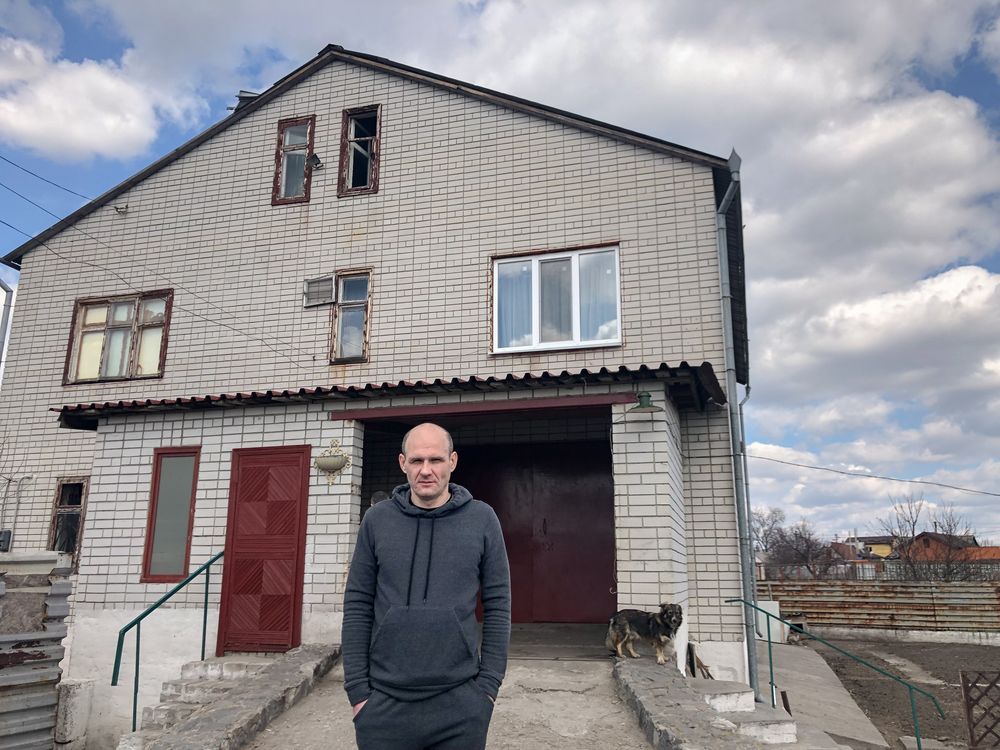Ukraine: Shelters for displaced people

In eastern Ukraine people are fleeing intense shelling on a daily basis.
Most of the time these people, who do not yet have a precise plan for their future, make a first stop in Zaporizhzhia or Dnipro.
They are housed and sheltered by a network of very active volunteers who help them with their basic needs.
Fled with her family
Tatiana 59 years old fled Popasna, in Luhansk region with her family (9 people, including 2 children).
They sat in the basement for 10 days, they couldn't stand it anymore.
On March 12 they managed to leave for Bakhmut.
Yesterday (April 5) they were evacuated to Dnipro.

Living temporarily in a shelter
Tatiana and her familiy live temporarily in a shelter located 20 kilometres in the north of Dnipro.
She says:
"We have nowhere to return, the house was destroyed, the factory where I worked was destroyed. The day before yesterday, when we went for humanitarian aid, we got under shelling, we were very scared, I'm still shaking. But God protects us. ”



Oleg, displaced from Mariupol
Oleg, 36, from Mariupol, in front of his shelter, a private house, in the north-west of Dnipro, which has been adapted for hosting as many people as possible while allowing them to live in good conditions.
Oleg left Mariupol before the war for work. His wife and 5 children are still blocked in the city and couldn't go to him yet.
He says:
"They are alive, the things that I passed on they got, a problem with the exit, the columns are getting blocked. Last time I contacted them was on the afternoon of March 26, and in the evening there was no contact.
"I really want to be together, I believe and hope"
.
This shelter is run by the NGO Caritas. Since the beginning of the conflict in Donbas in 2014, 65,000 people have been sheltered in this place. In general, people are in transit for 2 or 3 days and are provided with all the services they need to make them feel at home.
Alexander, displaced from Sievierodonetsk
Alexander, 40, arrived 2 days ago from Sievierodonetsk with his family (4 adults and 3 kids).
He says:
"Everything is getting ruined, houses were bombed, cars burned down. There are practically no new districts, they are erased, and old districts are on the way."

Sat in the basement for a month
"We sat in the basement for a month, then we moved closer to the factory, where there were fewer shootings. But it was no longer possible to live under these explosions."
"At first, the bakery was still working, we were going for bread, but it was dangerous, you don't know if you'll come back. I saw two girls who exploded while went for the water. "

Alexander is in a shelter run by the NGO Caritas. Since the beginning of the conflict in Donbas in 2014, 65,000 people have been sheltered in this place. In general, people are in transit for 2 or 3 days and are provided with all the services they need to make them feel at home.

MSF teams in the region are providing psychosocial support in Zaporizhzhia to people from Mariupol and the surrounding area who had managed to leave the area on their own or with the help of volunteers.
In Dnipro there are some sixty reception structures where displaced people are temporarily housed. Depending on the site, some can accommodate hundreds of people or a dozen if it is a private house.
According to the first assessments carried out by MSF in these places, mental health needs are currently the most important for these people who need to be able to confide in each other about their daily lives before they fled and about what they have just experienced.

